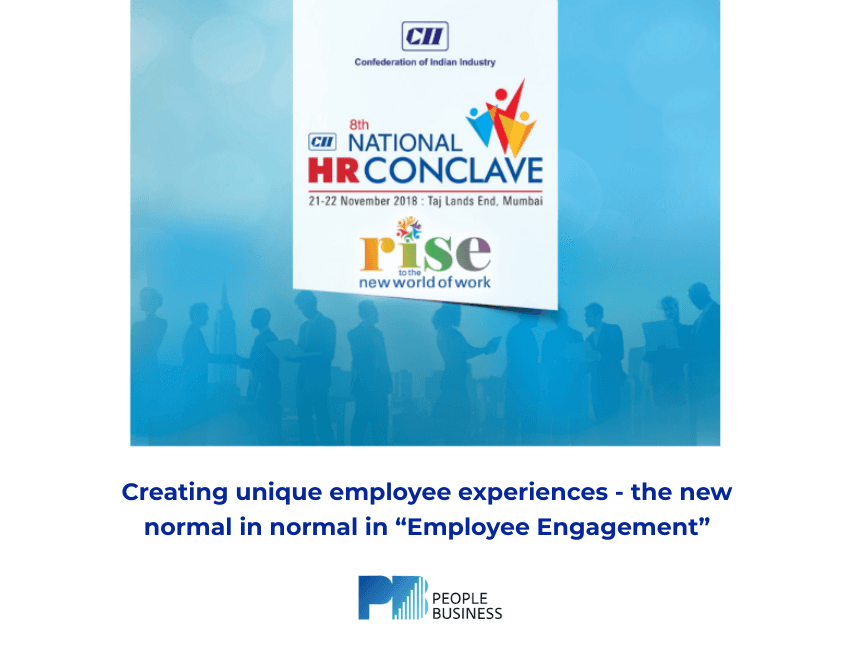
blog
|Talent Management
Proactively Managing the Growing Threat of Managerial Failure

The role of the manager has become increasingly complex and demanding in today's rapidly evolving business landscape. As organizations flatten their structures and managers take on larger teams, the responsibilities placed upon them have escalated significantly. According to a research, the average manager's number of direct reports has increased by a staggering 2.8 times over the last six years alone.
Amidst this mounting pressure, a startling reality emerges: nearly half of managers are at risk of failure, The implications of this statistic are far-reaching, as employees reporting to managers at risk of failure are 91% less likely to be high performers, three times more likely to seek employment elsewhere, and four times more likely to under perform on customer satisfaction and innovation goals.
Contrary to conventional wisdom, the primary predictors of manager failure do not stem from a lack of technical skills, coaching ineffectiveness, or an inability to prioritize. Instead, research has identified four key factors that heighten the risk of manager failure
Lack of Self-Awareness - While a majority of managers’ report having the necessary skills for their current roles, only one in five HR leaders believe that managers at their organization are aware of their own strengths and development areas. Managers who lack self-awareness are nearly three times more likely to fail than those who possess this crucial trait. Warning signs of self-unawareness include defensiveness to feedback, reluctance to delegate tasks, and an over reliance on senior stakeholders for decision-making.
Empathy as a One-Way Street - Empathy is a two-way street, and a lack of team empathy towards the manager increases the risk of failure by 3.7 times. While organizations focus on developing downward empathy in managers, only 9% have programs to cultivate upward empathy in employees. Signs of employees lacking empathy towards their manager include believing they could perform the manager's job, unwillingness to adjust to the manager's working style, and perceiving team goals as solely the manager's responsibility.
Unproductive Manager-Employee Relationships - While a majority of employees acknowledge that their managers have adapted their interaction styles in the post-pandemic environment, only a few derive valuable outcomes from these interactions. The most valuable interactions occur when managers shift towards regularly scheduled meetings, employee-driven agendas, behavior-focused conversations, and team-based strategic discussions.
Misalignment of Work with Goals- Amidst the constant barrage of changes and disruptions, managers are 42% more likely to prioritize immediate work support over aligning employees' efforts with broader organizational or individual career goals. However, when this alignment is lacking, managers are 2.4 times more likely to fail. Misalignment can manifest as unambitious goals, undocumented objectives, or frequently updated goals without proper communication.
To address these critical predictors of manager failure, organizations must take proactive measures. Research suggests that by effectively addressing these four factors, the risk of manager failure can be reduced from 48% to as little as 5%.
Recommended actions include:
Incorporating the risk of manager failure into the organization's risk management portfolio, measuring and tracking it alongside other business continuity risks.
Extending the focus beyond individual managers to encompass team dynamics and organizational processes that influence managerial success.
Leveraging engagement surveys and focus groups to identify early warning signs of manager failure and taking preventive steps.
Implementing risk-mitigation strategies, such as programs that build self-awareness in aspiring managers, teach upward empathy to employees, guide managers on valuable interaction styles, and align work with organizational and career goals.
As the manager's role becomes increasingly unmanageable in the face of organizational complexity and diverse employee needs, a proactive approach to addressing the risk of manager failure is paramount. By acknowledging and addressing the root causes of managerial struggles, organizations can cultivate a more empowered, aligned, and productive workforce, equipped to navigate the challenges of the modern business landscape.
Other Blogs
More insights


















